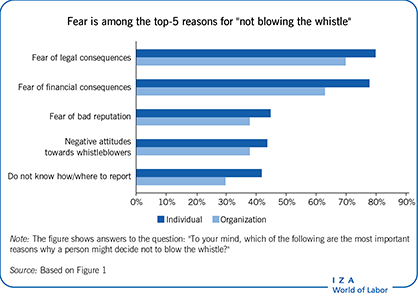Elevator pitch
Internal whistleblowing refers to the decision of an employee observing a misconduct in a firm to report it through an internal channel, i.e. via a hotline or directly to an identified ombudsman. Whistleblowing is highly beneficial to firms in various ways. However, employees may be reluctant to blow the whistle, both for moral reasons and due to a fear of retaliation. Consequently, a firm aiming at encouraging whistleblowing in order to save judicial or reputation costs, fines, and to spare its reputation should consider a wide range of possible measures in addition to developing a global ethical culture.

Key findings
Pros
Internal whistleblowing procedures reduce the risks of fraud that could damage firms.
Encouraging employees to report internally, along with the resulting reduction of fraud, reduces external whistleblowing to the authorities and thereby allows avoiding fines.
Internal whistleblowing prevents the firm from public whistleblowing announcements to the media that imply negative stock-price reactions and potential shareholder lawsuits.
Wrongdoing that is prevented or quickly corrected enhances working satisfaction and employee engagement. Implementing internal whistleblowing procedures improves the firm’s brand image.
Cons
Employees may misjudge the situation and wrongly blow the whistle.
Internal whistleblowing may challenge the organizational hierarchy and make the organization structure more fragile.
An employee who blows the whistle may suffer retaliation.
Internal whistleblowing procedures are not always efficient and may have counterproductive effects by demotivating whistleblowing.